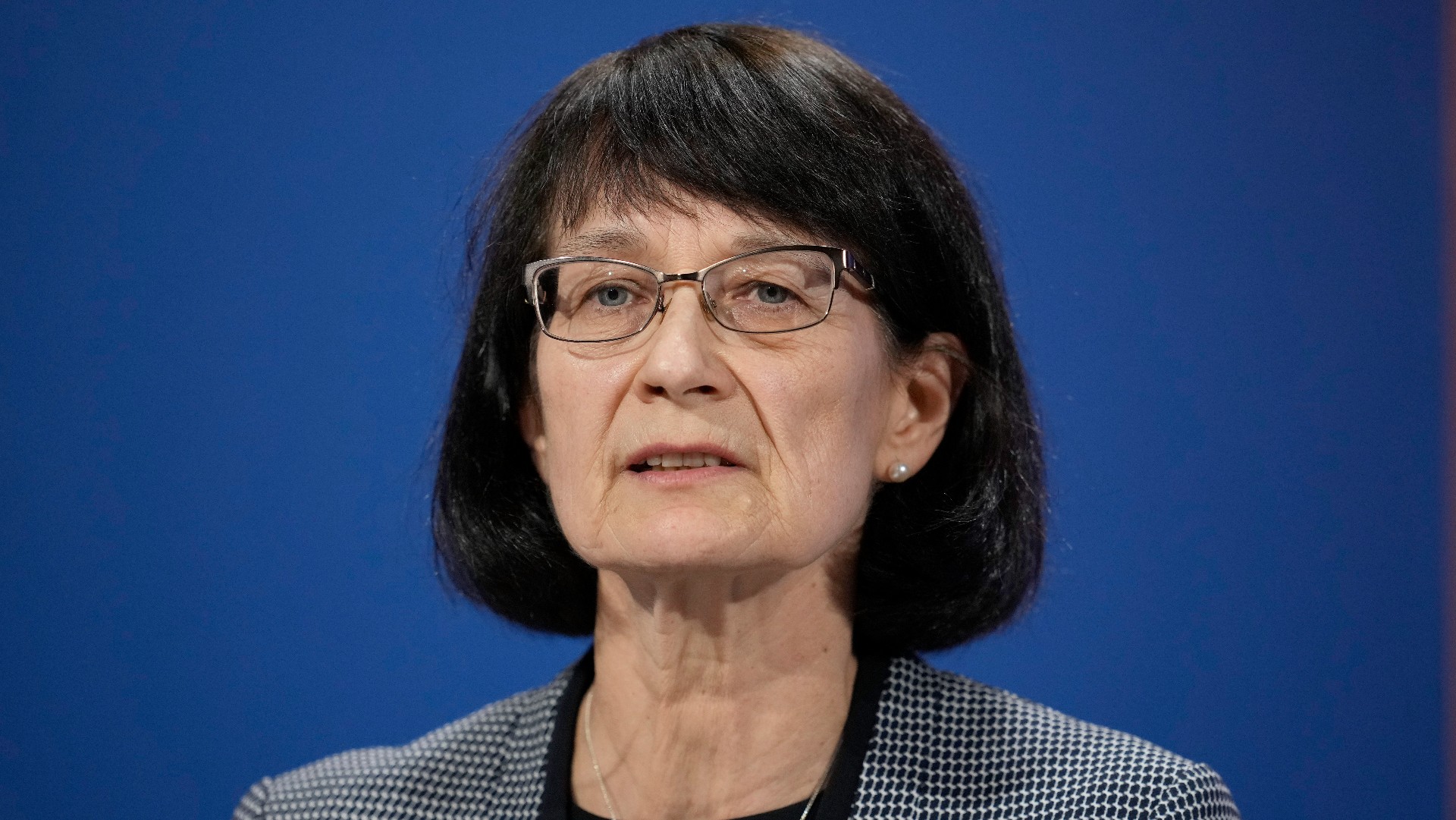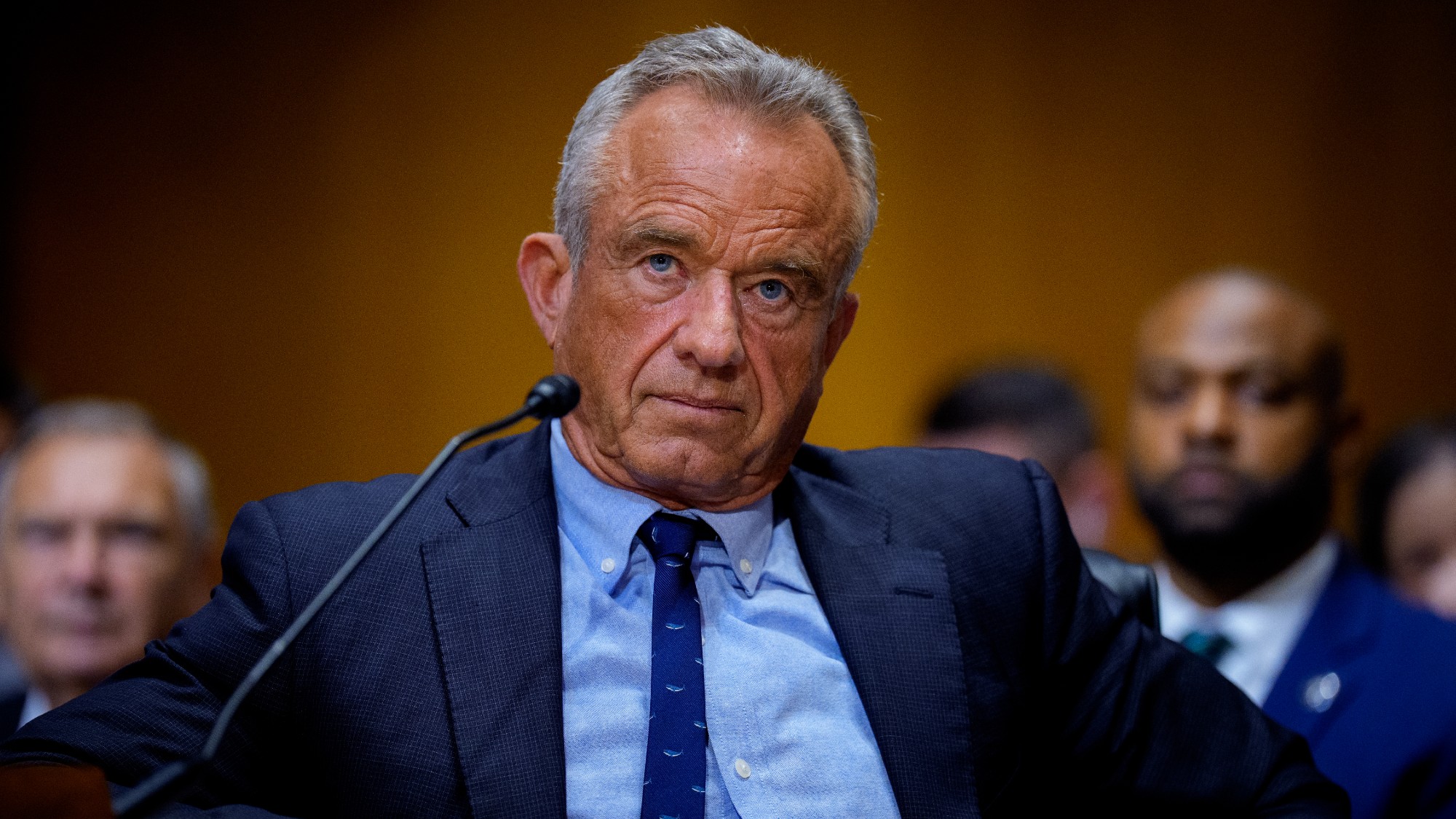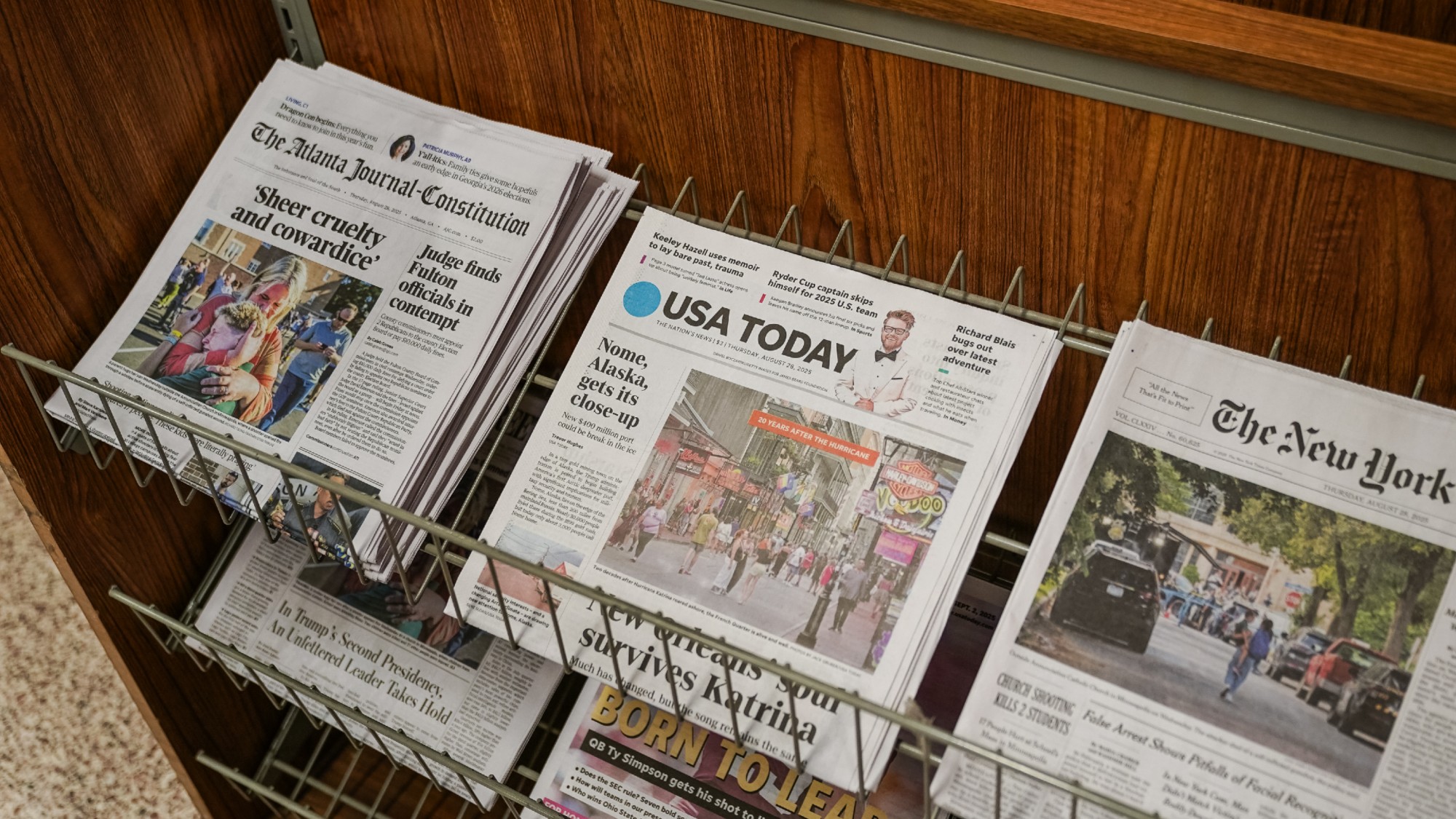Omicron risk: where Boris Johnson and his advisers disagree
Prime minister said booster jabs will give ‘the protection you need’ but Sage experts are more cautious

A free daily email with the biggest news stories of the day – and the best features from TheWeek.com
You are now subscribed
Your newsletter sign-up was successful
The prime minister appeared to contradict one of his top health officials yesterday on how to respond to the Omicron variant, amid what was described as a “day of muddled messaging” from No. 10.
The head of the UK Health Security Agency, Dr Jenny Harries, told BBC Radio 4’s Today programme on Tuesday morning that everyone should “decrease our social contacts a little bit” in order to limit the spread of Covid-19, and not socialise “when we don’t particularly need to”.
Her comments “caused panic in the hospitality industry”, said The Telegraph, and left Boris Johnson “scrambling to reassure the public that parties, Nativity plays and Christmas itself would go ahead”. When questioned at a Downing Street press conference, he confirmed: “We don’t want people to cancel such events.”
The Week
Escape your echo chamber. Get the facts behind the news, plus analysis from multiple perspectives.

Sign up for The Week's Free Newsletters
From our morning news briefing to a weekly Good News Newsletter, get the best of The Week delivered directly to your inbox.
From our morning news briefing to a weekly Good News Newsletter, get the best of The Week delivered directly to your inbox.
The PM’s spokesperson also pointed out that the UK Health Security Agency is “an arm’s-length body of government” and that Harries “is not a government minister”.
Her advice has been backed by some fellow experts, however. Scientific Advisory Group for Emergencies (Sage) member Professor John Edmunds, of the London School of Hygiene and Tropical Medicine, said that Harries was “of course, correct” and that “reducing our social contacts now will slow the establishment of this new virus in our country”.
Vaccine claims
Amid an increasing tally of reported UK cases of Omicron, the latest Covid-19 variant of concern, Johnson told the press conference yesterday that “there are good grounds for believing that the boosters will give you, under all circumstances, the protection that you need”.
A free daily email with the biggest news stories of the day – and the best features from TheWeek.com
But minutes from a Sage meeting held on Monday, seen by the BBC, reportedly indicated that such conclusions are premature.
The government advisers said it was “highly likely” that Omicron can escape immunity caused by previous infection or vaccination “to some extent”, according to the broadcaster.
And although booster vaccines were likely to provide protection against severe disease, hospitalisation and death from most variants in the short term, said the sage experts, “any significant reduction in protection against infection could still result in a very large wave of infections”, which “would in turn lead to a potentially high number of hospitalisations”.
The BBC said the minutes “make it clear that it is too early to know how ill the Omicron variant will make those infected or how that might vary by age”.
Christmas past haunting PM
The mixed messaging came amid fresh fears that the British public might not comply with new Covid restrictions. Ben Spencer, science editor of The Sunday Times, warned that “the clarity with which ministers present the request” will be pivotal to any adherence.
But the push for clarity has been hindered by newly published reports that Johnson and his Downing Street staff broke Covid rules by attending parties at No. 10 in the run-up to Christmas last year.
According to The Mirror, the PM gave a speech at a “packed leaving do” for a top aide last November, when the country was in the grip of the second national lockdown. And just days before Christmas, with London in Tier 3 restrictions, members of his top team reportedly held an unofficial festive bash at Downing Street. A spokesperson did not deny the claims but told the paper that “Covid rules have been followed at all times”.
‘Clear as mud’
The i news site’s chief political commentator Paul Waugh has also warned that “public health is often a matter of the right messaging as much as the right policies, and clarity is crucial”.
But Harries’ comments about decreasing social contact were “bewilderingly vague”, said Waugh. And the government’s “messaging ‘Omi-shambles’ over Omicron” may have “further fuelled suspicions ministers are so nervous of public opinion they fail to be straight about advice received”.
Despite ministerial reassurances, Waugh concluded that “the guidance on ‘social contacts’ will for many seem as clear as mud”.
-
 The environmental cost of GLP-1s
The environmental cost of GLP-1sThe explainer Producing the drugs is a dirty process
-
 Greenland’s capital becomes ground zero for the country’s diplomatic straits
Greenland’s capital becomes ground zero for the country’s diplomatic straitsIN THE SPOTLIGHT A flurry of new consular activity in Nuuk shows how important Greenland has become to Europeans’ anxiety about American imperialism
-
 ‘This is something that happens all too often’
‘This is something that happens all too often’Instant Opinion Opinion, comment and editorials of the day
-
 How corrupt is the UK?
How corrupt is the UK?The Explainer Decline in standards ‘risks becoming a defining feature of our political culture’ as Britain falls to lowest ever score on global index
-
 Childhood vaccines: RFK Jr. escalates his war
Childhood vaccines: RFK Jr. escalates his warFeature The health secretary cut the number of recommended childhood vaccines from 17 to 11
-
 The high street: Britain’s next political battleground?
The high street: Britain’s next political battleground?In the Spotlight Mass closure of shops and influx of organised crime are fuelling voter anger, and offer an opening for Reform UK
-
 ‘This is a structural weakening of elder protections’
‘This is a structural weakening of elder protections’Instant Opinion Opinion, comment and editorials of the day
-
 ‘Journalism is on notice’
‘Journalism is on notice’Instant Opinion Opinion, comment and editorials of the day
-
 ‘The point here is not to be anti-tech but to rebalance a dynamic’
‘The point here is not to be anti-tech but to rebalance a dynamic’Instant Opinion Opinion, comment and editorials of the day
-
 ‘What a corrective to such nonsense’
‘What a corrective to such nonsense’Instant Opinion Opinion, comment and editorials of the day
-
 Is a Reform-Tory pact becoming more likely?
Is a Reform-Tory pact becoming more likely?Today’s Big Question Nigel Farage’s party is ahead in the polls but still falls well short of a Commons majority, while Conservatives are still losing MPs to Reform